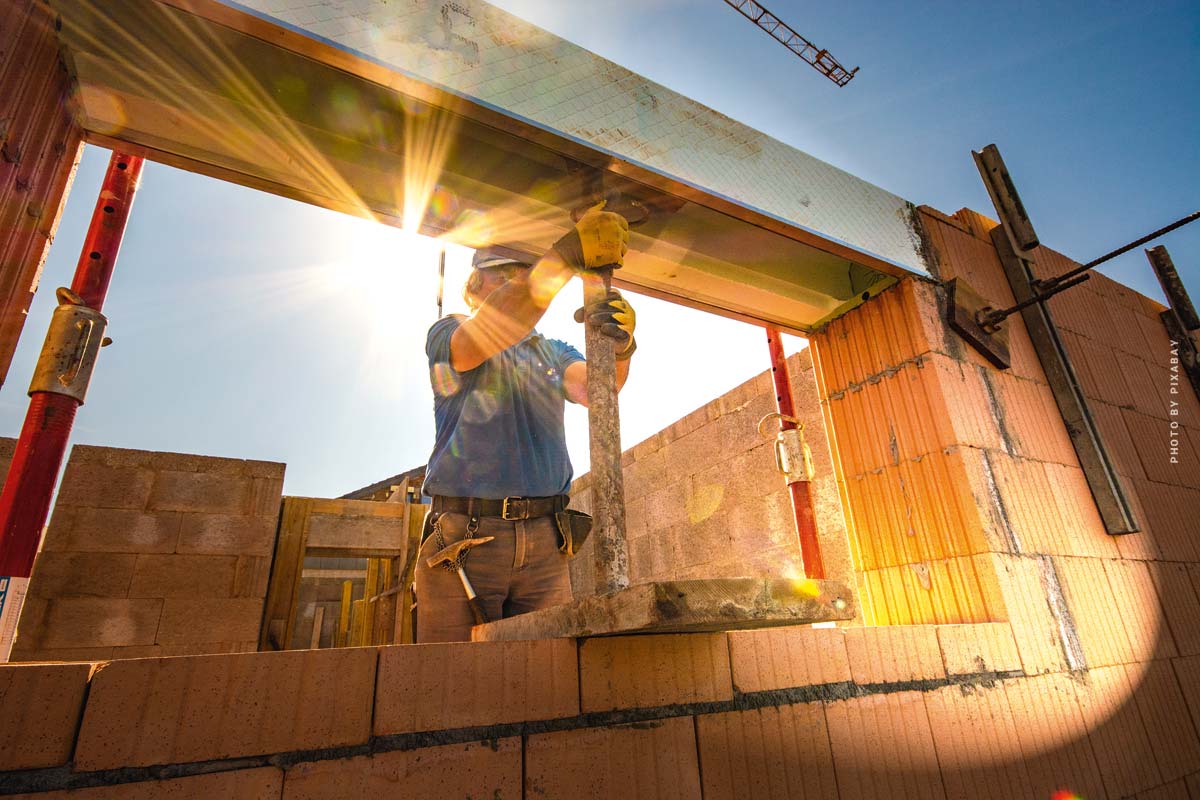Buying an apartment building: Property valuation, procedure, costs, taxes & tenants
Buying an apartment building is a far-reaching decision – both financially and organizationally. Whether as a capital investment, for retirement provision or for direct letting: those who make sound plans will benefit in the long term. In this guide, you will learn how to value properties correctly, what is important when it comes to financing, which legal framework conditions are important and how to maximize your return. Step by step – from buying to letting. Then everything is ready for renting out your apartment building. One more tip! Location, annual net cold rent + purchase price: This is how you can quickly evaluate an apartment building.
Buying an apartment building: Valuation & investment
Compared to single-family homes and condominiums, multi-family homes offer greater investment stability. With several residential units, you spread the risk of rent losses and benefit from a continuous cash flow. However, it is important that you have the property professionally valued so that you neither buy too expensively nor overlook hidden risks.
PS: First investment? Here are 4 tips for your first investment with video.
Real estate valuation: What is important?
The valuation of a property is not only based on square meters and year of construction. Factors such as location (macro and micro), energy status, condition of the roof, pipes and heating, as well as rental contracts, vacancies and development potential are decisive. A rough online estimate is not enough here – it is better to have a valuation report drawn up or use professional valuation models with comparable properties.
Reminder! Location, annual net cold rent + purchase price: This is how you can quickly evaluate an apartment building.
Recognize value enhancement & exploit potential
Are you looking for properties with development opportunities? Then look out for attics that can be converted, vacant properties that can be renovated or properties with potential for redensification. Converting to modern heating systems or adding balconies can also significantly increase the value. The decisive factor is cost-effectiveness: calculate each measure and compare it with the potential increase in rent or value.
Relationship between price, location and yield
In sought-after locations

Calculate rental yield & value correctly
The gross rental yield shows you what percentage of the purchase price you will achieve annually through rental income. It is calculated very simply: annual net cold rent divided by the purchase price, multiplied by 100. A solid gross yield for apartment buildings is between 6 and 9 percent – lower in prime locations and often higher in structurally weak areas. But be careful: a high yield in a poor location can be deceptive if resale is problematic.
Annual net rent ÷ purchase price × 100 = gross rental yield

Refurbishment property or fully let?
Refurbish & re-let
Buying a house in need of renovation can be worthwhile – if the location and substance are right. If you renovate efficiently, you can then rent it out again – at higher prices and to modern standards. In the case of vacant properties, make sure that there are no tenancies and find out about the renovation costs and possible subsidies in advance.
Fully let properties: Security & immediate income
A property that is already fully let generates income from day one. You should check all rental agreements here: Term, rent amount, indexation, graduated rents, notice periods. You should also ask for the tenants’ payment history. A mixed tenant structure without rent arrears is ideal.
Important: Tenancy law & limits of termination
You cannot give notice or raise the rent at will. Terminations are only permitted for personal use or breach of duty. Rent increases are limited by law – additional regulations apply in regions with rent control. Refurbishment costs may only be apportioned proportionately. Plan these aspects carefully.
Purchase contract & legal basis
Notary & contract review
The purchase contract is drawn up by the notary and must be notarized. The notary acts as a neutral third party and ensures that all legal conditions are met. You will receive a draft contract in advance, which you should check with your advisor or lawyer. At the notarization appointment, the contract is read aloud and any unanswered questions are clarified.
Land register, transfer of ownership & priority notice of conveyance
With the notarization, the purchase is legally binding – but you are not yet the owner. The transfer of ownership only takes place with the entry in the land register. Before this, a so-called priority notice of conveyance is entered to secure you. Prerequisite: The purchase price must be paid and the land transfer tax paid.

Taxes & ancillary purchase costs at a glance
Real estate transfer tax & ancillary costs
When buying a property, there are additional costs on top of the purchase price: Land transfer tax, notary fees, entry in the land register and, if applicable, estate agent’s commission. Depending on the federal state, these amount to 10 to 15 percent of the purchase price and usually have to be paid from equity. Sound financial planning takes these items into account from the outset.
Real estate GmbH & family foundation
For larger portfolios, it is worth structuring via an asset-managing GmbH or a family foundation. This allows you to benefit from tax advantages – for example in the event of inheritance or sale after the speculation period. However, the establishment and ongoing administration require good tax and legal advice.
Letting: Tenants, contracts & income
Successful letting starts with selecting the right tenants. In addition to creditworthiness and credit rating, personal impressions are also important. A clear, legally secure rental agreement protects both parties. The rent is based on the rent index, but must also match the furnishings and location. Pay attention to mandatory details such as operating costs, house rules, notice periods and rent adjustment clauses.
Conclusion: Strategy for success
An apartment building is not a short-term deal – it is a long-term investment that needs to be well planned. Anyone who knows the market, calculates the right key figures and strives for a legally compliant transaction will create a stable source of income and increase their assets in the long term. Take advantage of professional advice – for valuation, purchase, refurbishment or letting. This will help you avoid mistakes and ensure long-term success.














